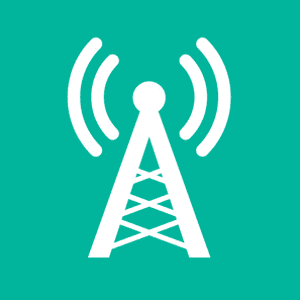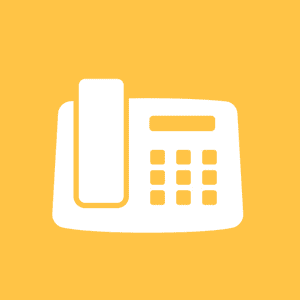Best Business Phone Service in North Dakota
Linking up with a high-quality North Dakota business phone provider can work wonders for your company. With the phone still the main way that people contact companies, using the ideal telephone provider is indeed crucial, and your goal is to find one that is legitimate, reasonably priced, and capable of providing you with the functionalities your business operates on. So before rushing out to pick a phone provider, it's a good idea to scope out the different kinds out there. Classic analog and VoIP are the two basic kinds of phone providers, and it's of the utmost importance that you fully grasp what differentiates the two prior to making a selection. Use the information below to examine North Dakota telephone companies for businesses.
| Provider | Plan Details | Monthly Rate* | |
|---|---|---|---|
 |
RATED #1 BY INDUSTRY EXPERTS
|
$19.99
|
Details

142 Reviews |
 |
Business phone service - no internet required
* 8.3% discount if paid for the year upfront |
$17.41*
|
Details

7 Reviews |
.png&contenttype=png) |
FULL-FEATURED CLOUD PHONE SYSTEM
* Rate/Min: $0.00 |
$9.95*
|
Details

2 Reviews |
 |
Smarter VoIP. Rated #1 in Customer Support
* Price based on a min. 12-month contract. |
$18.00*
|
Details

100 Reviews |
 |
Alliance Phone Service
* 12% discount for subscribing and paying for a year upfront |
$19.97*
|
Details

13 Reviews |
_4.png&contenttype=png) |
The phone system built to do business anywhere
* $5 per additional user |
$19.00*
|
Details

1 Reviews |
_2.png&contenttype=png) |
Get 99.99% network reliability with Fios.
* Per month. Plus taxes, fees and equipment charges. |
$69.00*
|
Details

11 Reviews |

Business VoIP Phone Service in North Dakota
VoIP has become a popular choice, and it stands for Voice Over Internet Protocol. It's one of the newest business phone service types offered by providers, and it can serve as a reliable alternative to an analog phone service. Although VoIP has been around for many years, it has only recently become significantly more popular with consumers. Smaller startups in North Dakota are most likely to use VoIP because it's much cheaper than a PSTN service. The call quality from both services is very similar, but the way the data is transmitted is what makes the services different. Unlike a traditional PSTN service, VoIP transfers calls through the Internet. A traditional business phone service sends calls through analog phone lines. For the best results with VoIP, it's useful to have a high-speed business Internet connection, and you can use a tool from MyRatePlan to test the speed of your current Internet connection.
Although the call quality for VoIP and PSTN is very similar, each service transfers calls differently. A traditional PSTN service transfers calls using an analog line, and a VoIP service sends call data through a high-speed Internet connection. Since calls through VoIP are digitized and broken down into digital data packets, they're much less expensive than an analog phone service. VoIP is also much cheaper for long-distance and international calls. Many VoIP service providers offer business owners a flat rate, and over a long period of time, the lower rate can save a lot of money.
Business VoIP phone service can come with a wide range of features, which is important for business owners. Most businesses have several employees, and they require several call features to operate efficiently. By choosing a VoIP service, business owners can gain access to voicemail with remote access, call forwarding, multiple extensions and ring groups. Although these are some of the top features, many VoIP service providers offer hundreds of different features.
The VoIP providers in North Dakota are designed to meet the needs of all types of businesses. They offer packages for small, medium and large businesses, and they deliver the features needed to efficiently run a business of any size.

How to Choose The Best Business Phone Service Provider in North Dakota
The growing popularity of this service has encouraged numerous companies to enter the market. Some business owners find it hard to choose a provider because there are so many options to consider. Nevertheless, it's worth taking the time to compare the features, prices and reputations of different firms. The extra effort can produce considerable long-term savings.
Business people must evaluate their needs, wants and limitations before selecting providers. For example, it's wise to look at the available features and determine what functions are likely to be useful more than once or twice. It also makes sense to calculate the necessary number of lines and establish a realistic spending limit.
Next, compare the plans available from several commercial phone services. Look for the least expensive option that supplies enough features and extensions. Thoroughly research the provider's reputation to make sure that its system works reliably. If a company intends to eventually close offices or hire additional staff, it should check the rates for various numbers of lines.
Keep in mind that dependability and honesty are more important than the lowest rates. A low monthly bill won't compensate for missed sales opportunities if the phone service isn't reliable. MyRatePlan helps North Dakota business owners find affordable services that they can rely upon. Please scroll down to see a detailed comparison.

How Does Traditional Business Phone Service Work in North Dakota?
Some businesses in North Dakota still run on a traditional PSTN phone service, and it's useful to understand how this type of service works. When calls are made using a traditional phone service, the calls must be sent through a PSTN, which is short for public switched telephone network. The PSTN is a nationwide system, and it's made of mobile networks, telephone lines, satellites and cables. The public switched telephone network was created over 100 years ago, and it was the first public phone system.
When compared to a VoIP service, it can cost significantly more money to use a traditional telephone service in North Dakota. The additional cost to use the PSTN is due to the massive size of the network, and the increased cost of maintaining the network. One of the major downsides of using the PSTN is the lack of reliability over long distances. Although a traditional phone service can work well for short distances, it has trouble sending call data across long distances.
A call that is made with the PSTN system must stop at several different parts of the network, and it must pass through equipment that is owned by different companies. The infrastructure is the major cost of using a PSTN, and the ongoing expenses needed to maintain the network keep the cost of traditional phone services high.

Analog Phone System Use With a PBX in North Dakota
A private branch exchange or PBX, is what most North Dakota businesses use to route calls inside their own offices. The PBX permits multiple extensions, voicemail, call forwarding and other important features. On a PSTN, the user's premises or an off-site location can house the PBX. A PBX costs a lot of money to run, regardless of the location.
This is due to required hardware costs, an investment of at least $1000. The equipment then has to be installed, configured and maintained on a regular basis. These, of course, cost money in addition to the initial purchase price. You have the option to get your in-staff employees to be responsible for the equipment or hire a professional. Professionals are known to charge $100 per hour or more.
Any kind of updates or maintenance on a traditional PBX system in North Dakota is going to be very expensive. Be advised that such a system may not be adequate for all your needs, as it only supports a limited number of phone lines. You will need to spend extra money if you need to add more extensions in the future as your business grows.
From time to time, a PBX system will breakdown, just like any other network made from electrical components. In order to repair the hardware, you'll need to be prepared to pay high fees and may even need to buy new hardware to replace it. This could present a potential financial obstacle for start-ups or slow-growing businesses.
Find Business Phone Service Providers in
- Fargo, ND
- Bismarck, ND
- Grand Forks, ND
- Minot, ND
- West Fargo, ND
- Cummings, ND
- Mekinock, ND
- Flasher, ND
- Arnegard, ND
- Walcott, ND
- Casselton, ND
- Moffit, ND
- Gladstone, ND
- Kulm, ND
- Inkster, ND
- Tokio, ND
- Hoople, ND
- Wishek, ND
- Bowdon, ND
- Braddock, ND
- Regent, ND
- Northwood, ND
- Balta, ND
- Fingal, ND
- Carrington, ND
- Horace, ND
- Arvilla, ND
- Kintyre, ND
- Lefor, ND
- Mercer, ND
- Almont, ND
- Taylor, ND
- Mcclusky, ND
- Towner, ND
- Hebron, ND
- Galesburg, ND
- Manning, ND
- Tolley, ND
- Saint John, ND
- Belfield, ND
- Hope, ND
- Dodge, ND
- Drayton, ND
- Jessie, ND
- Rocklake, ND
- Woodworth, ND
- Balfour, ND
- Pingree, ND
- Wildrose, ND
- Sykeston, ND
- Colfax, ND
- Sheyenne, ND
- Ray, ND
- Finley, ND
- Aneta, ND
- Lakota, ND
- Hunter, ND
- Stirum, ND
- Cayuga, ND
- Larimore, ND
- Sheldon, ND
- Fredonia, ND
- Courtenay, ND
- Bathgate, ND
- Munich, ND
- Dickinson, ND
- Petersburg, ND
- Parshall, ND
- Agate, ND
- Grandin, ND
- Garrison, ND
- Neche, ND
- Medina, ND
- Roseglen, ND
- Ellendale, ND
- Souris, ND
- Bowbells, ND
- Glasston, ND
- Rolla, ND
- York, ND
- Killdeer, ND
- New Town, ND
- Golva, ND
- Berlin, ND
- Arthur, ND
- Goodrich, ND
- Hazen, ND
- Kramer, ND
- Forest River, ND
- Linton, ND
- Hensel, ND
- Minot Afb, ND
- Christine, ND
- Marshall, ND
- Reeder, ND
- Granville, ND
- Powers Lake, ND
- Jamestown, ND
- Enderlin, ND
- Solen, ND


 Menu
Menu